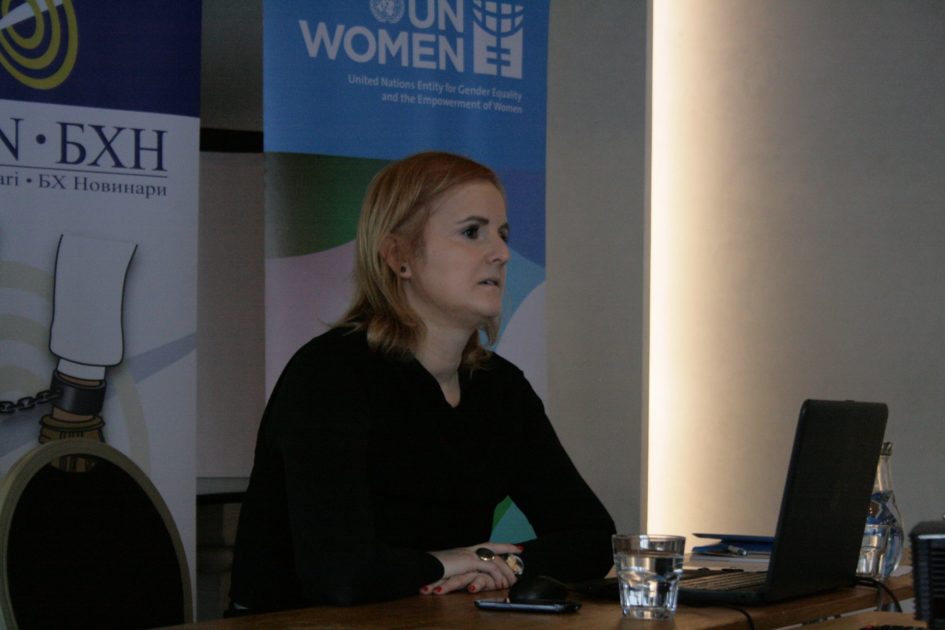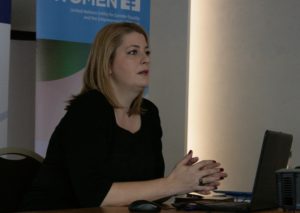
JAHORINA, 20.10.2017. –  Violence against women always implies a certain form of discrimination and violation of human rights, and the struggle against gender-based violence demands a dramatic turnaround in human consciousness and public perception of this social problem, was highlighted, at the Journalist Academy 2017 for journalism students “Reporting on Gender Issues based violence “that is being held in Jahorina.
Violence against women always implies a certain form of discrimination and violation of human rights, and the struggle against gender-based violence demands a dramatic turnaround in human consciousness and public perception of this social problem, was highlighted, at the Journalist Academy 2017 for journalism students “Reporting on Gender Issues based violence “that is being held in Jahorina.
Fatima Bećirović from Gender Center of FBiH , a visiting lecturer at the educational workshop, pointed out that violence as a social problem should be addressed by the state, through institutions and by applying laws. Nevertheless, punishment for perpetrators of gender-based violence and domestic violence is often much milder than what is legally foreseen.
“According to statistics, the Municipal Court Zenica pronounces the highest penalties for cases of domestic violence and thus represents an example of good judicial practice in dealing with cases of gender-based violence. In cases of other courts, the data is mostly devastating, “Bećirović said, adding that “in more than 70% of the cases the sentences are imposed, while a small percentage of prison sentences and fines “.

Fatima Šušnjar
Fatima Šušnjar, coordinator of The safe house in Bihać, run by a non-governmental organization “Women from Una”, talked about what goes through a woman suffering from domestic violence and presented a series of violence and opportunities to escape from it.
“When a woman comes out of the circle of violence she has three options, namely SOS call, addressing the police and the social work center. However, women who survived violence, especially in rural areas, often do not know or to whom to invoke or to call, said Šušnjar.

Kristina Ljevak
Journalist and activist Kristina Ljevak spoke about the harmfulness of the stereotypical way of presenting women in the media. “Stereotypes and women’s discrimination in media is most prominent in the advertising industry,” said Ljevak, adding that future journalists are bound to speak affirmatively about the rights of women.
The Spanish movie “Te doy mis ojosi”, shows the social problem of gender-based violence through a love and life story was showen tot he participants.
Journalists academy gathered participants from Sarajevo, Banja Luka, Tuzla, Ljubuški, Višegrad, Easter Sarajevo, Mostar, Pale and Bugojno, and is part of the project “Disconnect Violence – Media against Violence against Women” implemented by the Association of BH journalists with support UN Women Offices in BiH and the Swedish International Development and Cooperation Agency (Sida).